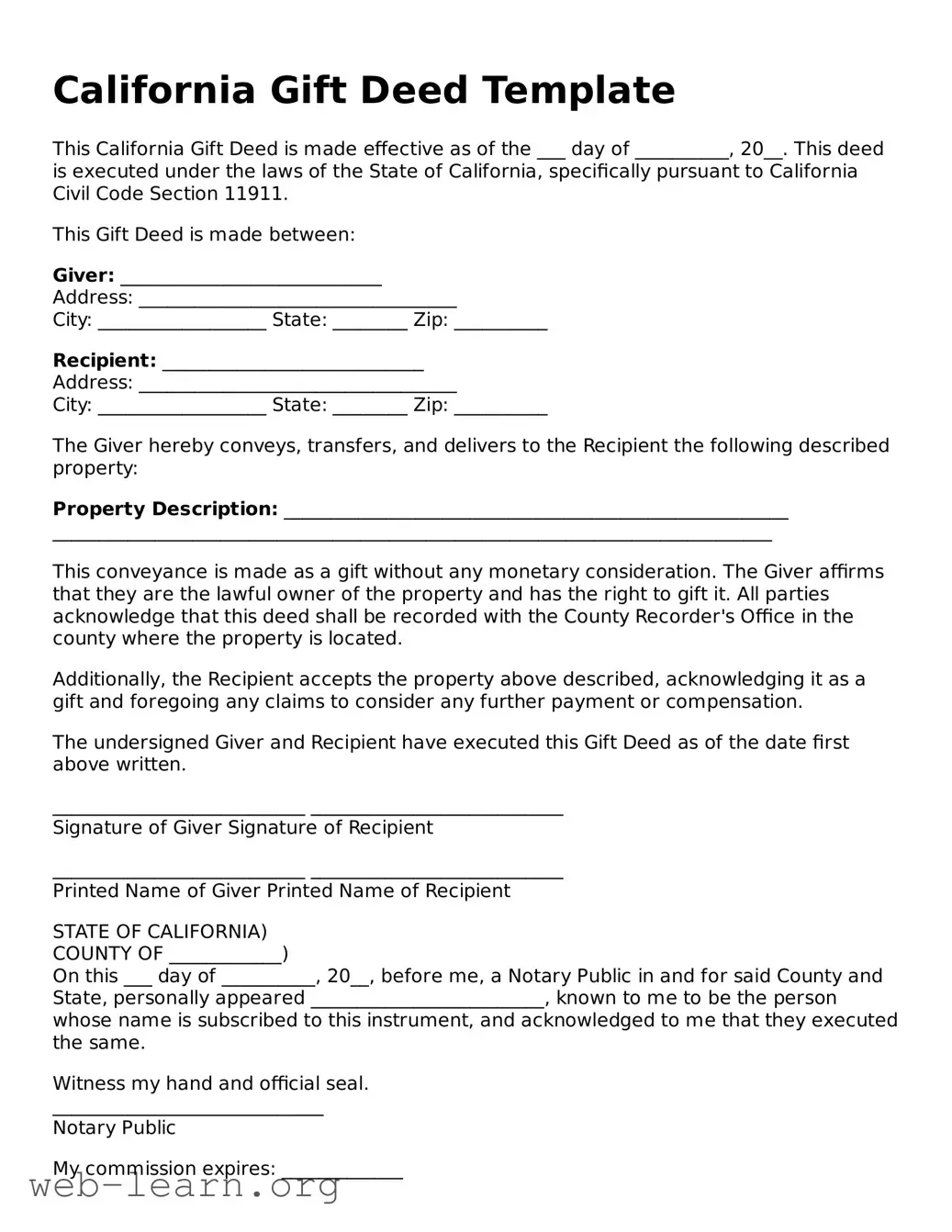California Gift Deed Template
This California Gift Deed is made effective as of the ___ day of __________, 20__. This deed is executed under the laws of the State of California, specifically pursuant to California Civil Code Section 11911.
This Gift Deed is made between:
Giver: ____________________________
Address: __________________________________
City: __________________ State: ________ Zip: __________
Recipient: ____________________________
Address: __________________________________
City: __________________ State: ________ Zip: __________
The Giver hereby conveys, transfers, and delivers to the Recipient the following described property:
Property Description: ______________________________________________________
_____________________________________________________________________________
This conveyance is made as a gift without any monetary consideration. The Giver affirms that they are the lawful owner of the property and has the right to gift it. All parties acknowledge that this deed shall be recorded with the County Recorder's Office in the county where the property is located.
Additionally, the Recipient accepts the property above described, acknowledging it as a gift and foregoing any claims to consider any further payment or compensation.
The undersigned Giver and Recipient have executed this Gift Deed as of the date first above written.
___________________________ ___________________________
Signature of Giver Signature of Recipient
___________________________ ___________________________
Printed Name of Giver Printed Name of Recipient
STATE OF CALIFORNIA)
COUNTY OF ____________)
On this ___ day of __________, 20__, before me, a Notary Public in and for said County and State, personally appeared _________________________, known to me to be the person whose name is subscribed to this instrument, and acknowledged to me that they executed the same.
Witness my hand and official seal.
_____________________________
Notary Public
My commission expires: _____________
